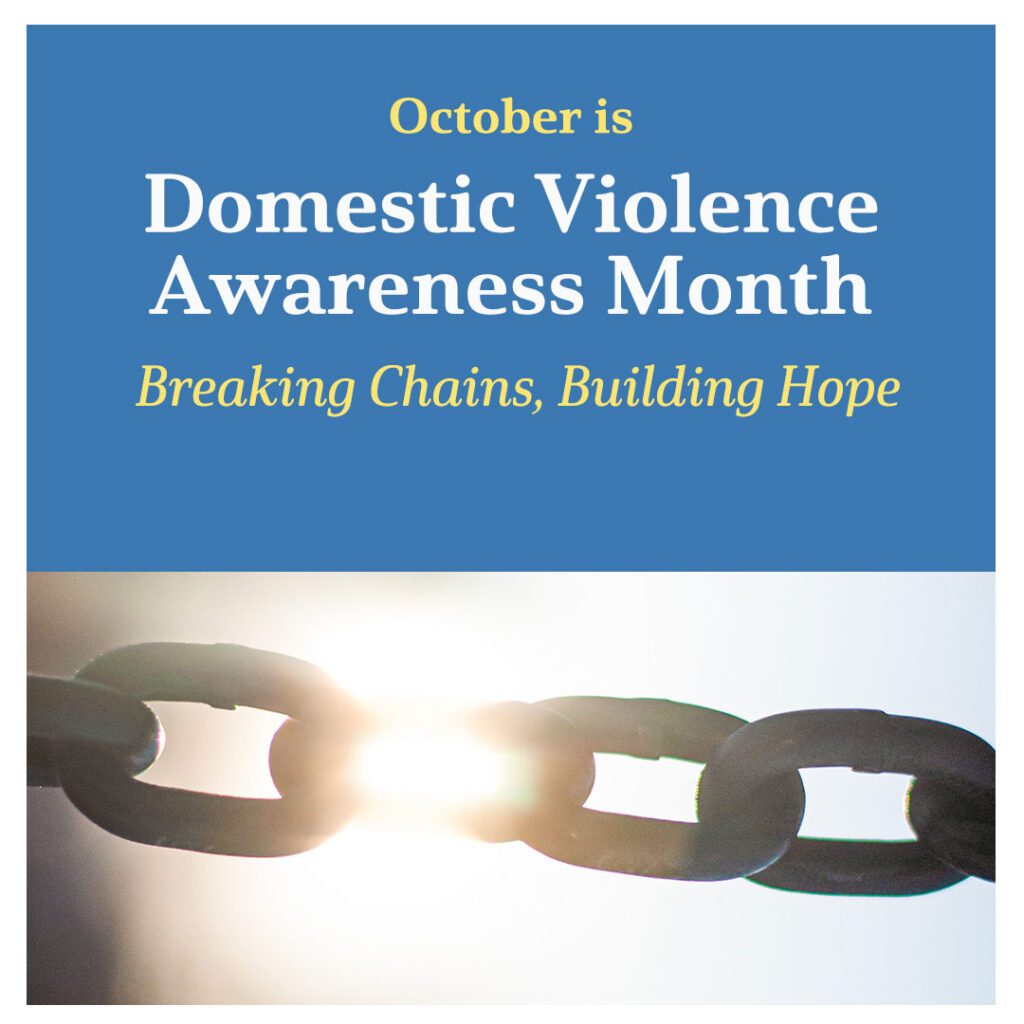October is Domestic Violence Awareness Month, a time to raise awareness about the issue of domestic violence and its impact on survivors, their families, and their communities. According to the National Coalition Against Domestic Violence (NCADV), 1 in 15 children are exposed to intimate partner violence each year, and 90% of these children are eyewitnesses to this violence. Domestic violence is not only a serious public health problem that affects millions of people each year, it is also a major risk factor for human trafficking. Children who are exposed to domestic violence are more likely to be trafficked, and trafficked children are more likely to have experienced domestic violence.
Domestic Violence Awareness Month and What It Means
Domestic Violence Awareness Month was first established in 1981 by the NCADV. The goal of the month is to raise awareness about the issue of domestic violence, to honor survivors, and to support organizations that are working to end domestic violence. Domestic violence is a pattern of abusive behavior in any relationship that can include physical violence, sexual violence, emotional abuse, financial abuse, and stalking. It can happen to anyone, but it is most common among women and children. Every year, the White House recognizes Domestic Violence Awareness Month and issues a proclamation on its prevention in the United States.
Let’s explore further the connection between domestic violence and human trafficking, and discuss what can be done to protect children from both forms of abuse.
How are domestic violence and human trafficking connected?
According to the International Organization for Migration, approximately one in 4 women have experienced violence or stalking by an intimate partner, and an estimated 41% of child trafficking is facilitated by family and/or caregivers. There are a number of ways in which domestic violence and human trafficking are connected. First of all, according to the Polaris Project, traffickers often target children who are experiencing domestic violence. Children who are abused are more likely to be vulnerable and isolated, making them easier for traffickers to exploit. Domestic violence can lead to homelessness and runaway youth, and children who run away from home are at an increased risk of being trafficked. Domestic violence can create a culture of violence and abuse, which can normalize human trafficking. Children who witness or experience domestic violence are more likely to be victims of human trafficking themselves.
Breaking Chains, Building Hope
At Libertas Home, our theme for Domestic Violence Awareness Month 2023 is “Breaking Chains, Building Hope.” This theme highlights the importance of supporting survivors in breaking free from the cycle of abuse and building hope for a better future. Human traffickers often target children and adults who are experiencing domestic violence, as they are more vulnerable and easier to exploit. When we support survivors of domestic violence, we are helping them to break free from the cycle of abuse and to build hope for a better future.
What can be done to protect children from domestic violence and human trafficking?
While the situation may seem dire, there are a number of things that parents, caregivers, and concerned citizens can do in order to protect children. To start with, talk to your children about domestic violence and human trafficking. Let them know that they can come to you if they are ever feeling unsafe or if they know someone who is being abused.
Additional Ways to Show Your Support
- Wear purple on Tuesdays. Purple is the color of Domestic Violence Awareness Month. Wearing purple on Tuesdays is a way to show your support for survivors and to raise awareness about the issue of domestic violence.
- Donate to a domestic violence or anti-trafficking organization. There are many organizations that are working to end domestic violence and to support survivors, such as NCADV. Donating to anti-violence organizations in general is a great way to make a difference in the lives of survivors and their families. At Libertas Home, we’d really appreciate your donations as well!
- Volunteer your time. There are many ways to volunteer your time to show your support. You could volunteer to answer the phone at a domestic violence hotline, to provide childcare for survivors’ children, or to help out with a fundraising event. We always have volunteer opportunities available as well, where your assistance meaningfully contributes to our mission.
- Spread the word. Talk to your friends, family, and colleagues about domestic violence. Educate them about the signs of abuse and the resources that are available to survivors. You can also take our OnWatch training for more information.

